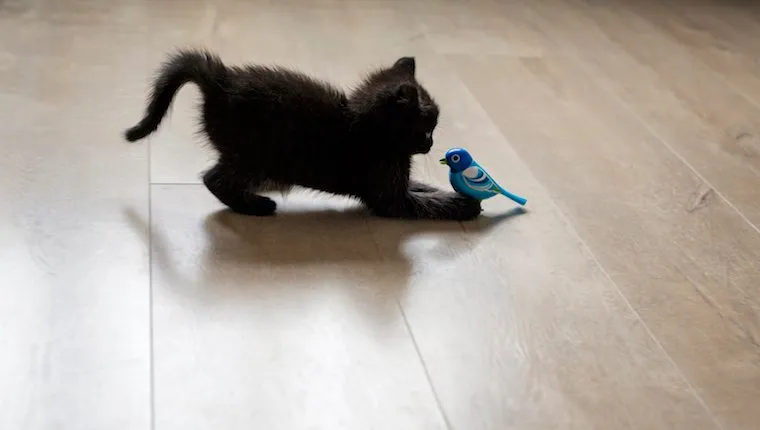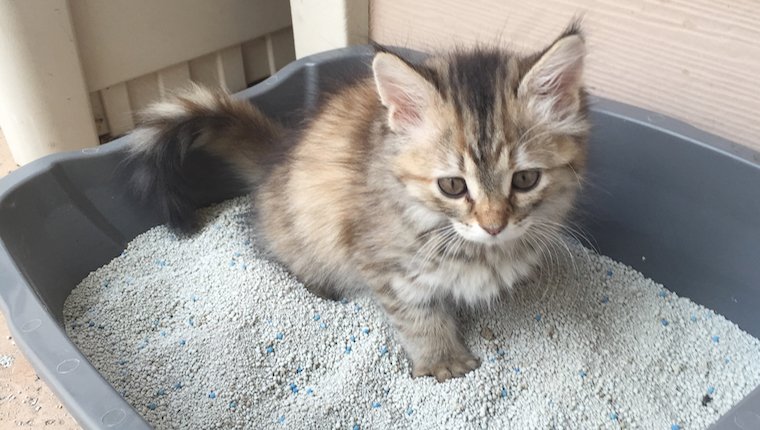
Few things are better than life with a kitten. These adorable little furballs are endlessly fun and impossibly cute, but it’s also important to know exactly what you’re getting into when you adopt a kitten.
Any cat you adopt will have needs that you’ll have to fulfill, but kittens require some special care. Before you adopt, make sure you consider which cat may be best for your home and family. Plenty of adult and senior cats need forever homes, too!
Here are five essential tips for getting to know your kitten and caring for them as they grow.
Have you ever adopted a kitten before? Do you have any other tips for people who want to adopt a new kitten? Let us know in the comments below!
Support our content by clicking the bold links in the article to shop for your cat!
Essential Tips For When You Adopt A Kitten
-
Plan For A Period Of Adjustment

(Picture Credit: Susan Sheldon / EyeEm / Getty Images)
Kittens can be resilient creatures. However, when you bring a new kitten home, you still need to plan for a period of adjustment before inviting everyone you know to come for a visit.
First up, set your new kitten in a small room where they can explore safely and get accustomed to their new environment. Food, water, a litter box, a scratching post, and some toys are key.
Once your kitten seems to be getting used to their new digs, you can slowly let them begin to explore the rest of the house or apartment.
-
Kitten Play Is Essential

(Picture Credit: mrs / Getty Images)
Kittens have two settings: play and sleep. A kitten's need for play peaks when they're about twelve weeks old, which is right around the point when your kitten should come home with you.
To that end, make sure your kitten has a variety of toys to fulfill their love of play and being active. Suggestions include puzzle toys that dispense treats, stuffed toys to stalk and attack, and balls or electric toys to chase.
These toys will let your kitten exercise their natural hunting instincts, too.
-
Monitor Your Kitten's Biting Instincts

(Picture Credit: Fjola Dogg Thorvalds / Getty Images)
Fresh kittens might be prone to biting.
A simple solution when your kitten starts to bite in an inappropriate manner is to make a loud noise (like a good "Ouch!"), walk away, and then give them a suitable toy to bite or attack.
At this point you can heap praise on your kitten for demonstrating appropriate behavior with the toy instead of your fingers.
-
Encourage Good Behavior Early

(Picture Credit: Michèlle Wever Photography / Getty Images)
Well before your new kitten is four months old, you'll want to foster good behavior and socialization. This might involve dealing with dogs, children, vet visits, car journeys, wearing a harness or leash, plus any grooming and dental regimens.
Go slow, make it fun, and give your kitten lots of praise, petting, and treats when they're encountering what might be a new and potentially scary situation or activity.
Starting early will help your cat be more outgoing and well-behaved in the future as an adult. It will also make routine tasks, like brushing their teeth or going to the vet, much easier.
-
Figure Out The Litter Box Situation

(Picture Credit: melg-photography / Getty Images)
Finally, set up your kitten's litter box so that it's attractive to use.
At first, offer a choice of several types of litter so your cat can select their favorite, plus include a choice between an open and a covered litter box.
Also, always keep the box super clean, both in terms of scooping out poop and washing it regularly with non-harsh cleaning products. You may wish to replace the litter box every so often.
Remember, cats can smell things you can't, and an old litter box might harbor some nasty odors, even after a wash.









